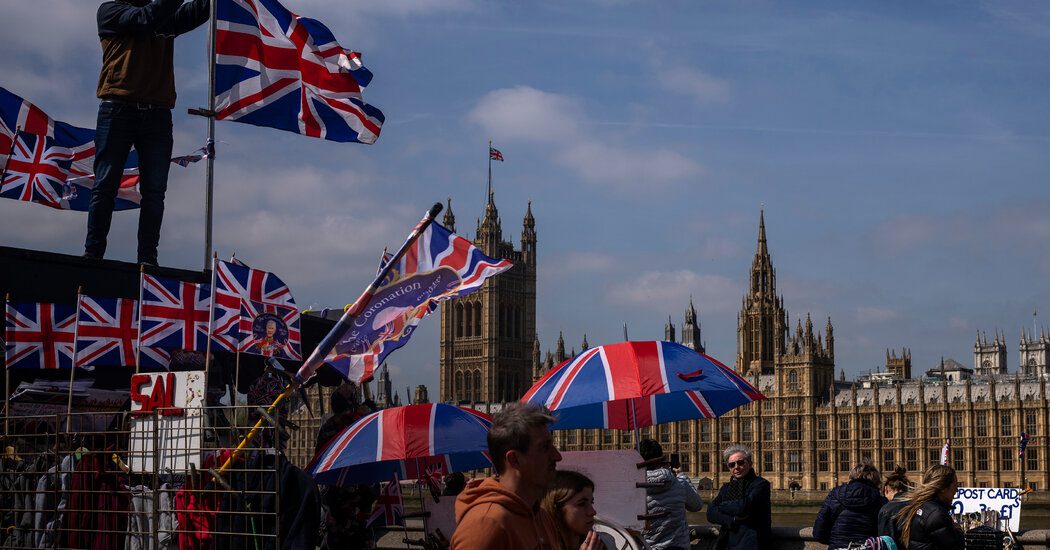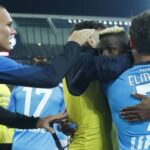Global Courant 2023-05-05 01:45:01
Coronation Day
Tomorrow King Charles III will be crowned in Westminster Abbey. It will be the UK’s first coronation in 70 years.
Charles has been king since his mother, Queen Elizabeth II, died seven months ago. Since taking the throne, he has worked to make the monarchy more accessible, forward-looking and inclusive, royal guards say.
As king, Charles faces an enormous task. He balances between tradition and modernity, which is reflected in his personal life. He is divorced – and remarried. He eats healthy and cares about climate change. But tomorrow’s rituals will remind us that in a secular, multi-ethnic society in the digital age, the crown is essentially an anachronism.
The British people, some of whom are more preoccupied with the rising cost of living, have not necessarily turned against the idea of a king. But many, especially younger people, find the trappings of royalty increasingly irrelevant.
There are some calls for a realignment around the Commonwealth, but independence is not a top priority for Canada, Australia or New Zealand.
Details: The festivities begin at 11am in London, or 8pm in Sydney and 6pm in Hong Kong. Read more about the coronation in our FAQ
For more: check out these memorable photos from Charles’ life.
Readers weigh in: We’ve asked you to share your thoughts on the Royal Family. Here’s what two readers from Australia had to say:
I have absolutely no interest in this dysfunctional, archaic, parasitic institution. My main interest in the British monarchy is to see Australia break away and become a republic! — Karen Houghton, Brisbane
When I learned I was only a year older than Prince Charles, I became interested in the royal family, but never became a staunch royalist. Once I was for a republic, but many world presidents over the decades, especially in recent years, have changed my opinion. —Carole B.
Chinese security agents have made unannounced visits to the Chinese offices of several foreign companies in recent weeks and seem particularly focused on US consulting firms, such as Bain & Company.
Separately, Chinese lawmakers have expanded anti-intelligence laws, which the US ambassador said could make illegal the “mundane” research companies regularly conduct prior to an investment deal.
As the investigation fuels a new climate of uncertainty, a US-based lawyer said he had recently heard of two US companies attempting to exit China. “The message is, ‘We don’t care that much about the economy. What matters to us is keeping you in line.’”
Analysis: The steps appear to reflect demands from China’s leader Xi Jinping to strengthen national security and cut off the flow of potentially sensitive information to foreign governments and investors.
Related: Chinese internet regulators have banned videos and posts about poverty and tough economic realities. Behind the ban is a government that is keen to keep all conversations about China positive, writes our columnist Li Yuan.
The cost of corruption in Turkey
A Times investigation examines how corruption in Turkey’s construction boom undermined security. More than 50,000 people died when buildings collapsed, collapsed or collapsed during the earthquake on February 6.
President Recep Tayyip Erdogan, who is running for re-election this month, used construction as a vessel for growth and a symbol of Turkey’s progress. But under his leadership, developers made payments to bypass bureaucratic approvals, putting speed before security.
In one case, a developer received zoning approval for an apartment complex in Antakya after donating more than $200,000 to a local soccer club, whose mayor is honorary president.
The project failed the inspection, but the developers used political influence to open the doors anyway. When that apartment complex collapsed during the earthquake, about 65 people died.
THE LAST NEWS
The war in Ukraine
The US vehemently denied any involvement in an apparent drone attack on the Kremlin after Russia accused Washington of telling Ukraine where to strike.
President Volodymyr Zelensky of Ukraine traveled to The Hague and called for an independent tribunal to prosecute Russian war crimes.
Around the world
Eating highly processed foods, such as breakfast cereals and frozen meals, has been linked to an increased risk of diabetes, obesity and even cancer. But recent research shows that they are also associated with anxiety, depression and cognitive decline.
Scientists are still trying to figure out why, but much of the research focuses on gut health. The link between these foods and mental health could also work both ways: People who are anxious or depressed tend to eat more unhealthy foods, a nutrition professor said.
For more: Do you know how to spot ultra-processed foods? Take our quiz.
‘Superfake’ handbags
One of the handbags shown above was made by Chanel. It costs $10,200. The other one, well, isn’t made by Chanel. It’s $390.
But can you spot the difference?
I certainly couldn’t. Some of these realistic fakes, known as “superfakes”, even trick professionals. They “get so good, to the point where it comes down to etching on the inside, or nine stitches instead of eight,” an authenticator told The Times.
The veracity turns luxury fashion on its head, which relies on quality and exclusivity to justify the high prices. These bags are mostly made in China, using high quality materials and skilled labor. Does this mean that they are not, in fact, fakes at all?
“If you believe that fashion is inherently all about artifice,” writes Amy Wang in The Times Magazine, “then there is an argument to be made that the superfake handbag, blunt and forthright with the buyer about its cheating, is the most honest .unpainted item of all.








